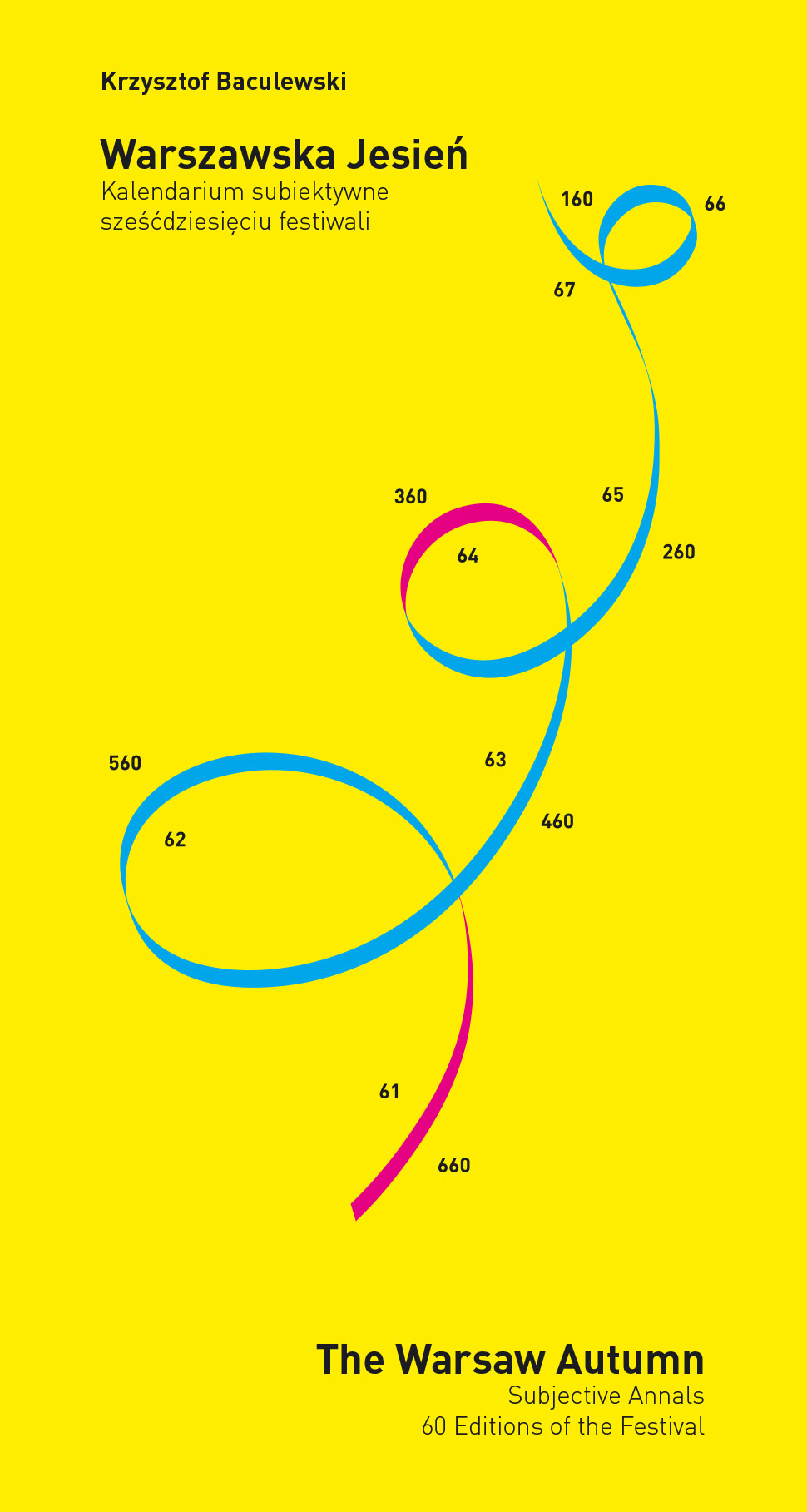
Krzysztof Baculewski "Subjective Annals 60 Editions of the Festival"
The first 25-year period of the 'Warsaw Autumn''s activity, which began in October 1956, came to an end with the imposition of the martial law on 13th December 1981. Although the musical community was not directly a ected by this, the suspension of telephone services and censorship of correspondence meant that contacts were broken o . The Polish Composers' Union was suspended, which meant it was deprived of the power to act; it came close to being delegalised and dissolved in the spring of 1982. In fact there were a number of musicians who would have approved of such a step, and a number of legally produced pamphlets were published promoting such action... However, the Management Board of the Union saved face and managed to preserve unity. In spite of political pressures, it cancelled the 1982 'Warsaw Autumn', and the authorities did not decide either to dissolve the Union or to take over the Festival. us a return to the tradition was not possible until 1983. However, the programmes were examined for their political aspects much more thoroughly than before. Accordingly, Andrzej Panufnik's Sinfonia votiva had to be removed from the programme, since censorship continued to have a suspicious attitude toward him. As a result of the political situation, and of the fact that the 'Warsaw Autumn' had dropped out of the calendar of international events, the Festival had to rely mainly on musicians from Poland and the other 'peoples' democracies'. However, even in that year a number of important events took place, such as the performance of Requiem by Edison Denisov with solos by Elżbieta Towarnicka (soprano) and Piotr Kusiewicz (tenor) at the opening concert, the opera Mannequins by Zbigniew Rudziński, a cycle of Violin Sonatas by Charles Ives (violinist Aureli Błaszczok and Eugeniusz Knapik as pianist), the opera Gamblers by Dmitri Shostakovich, which had been completed by Krzysztof Meyer (Wuppertaler Bühnen), a concert by the Arditti Quartet (including Tetras by Iannis Xenakis), as well as the first of the phenomenal Lithuanian oratoria-mysteries - Last Pagan Rites by Bronius Kutaviãius. Debuts by Lidia Zielińska (Taniec sobotni [Saturday Dance]), Edward Sielicki (Agnus Dei) and Rafał Augustyn (Violin Quartet No. 2 with flute ad libitum).